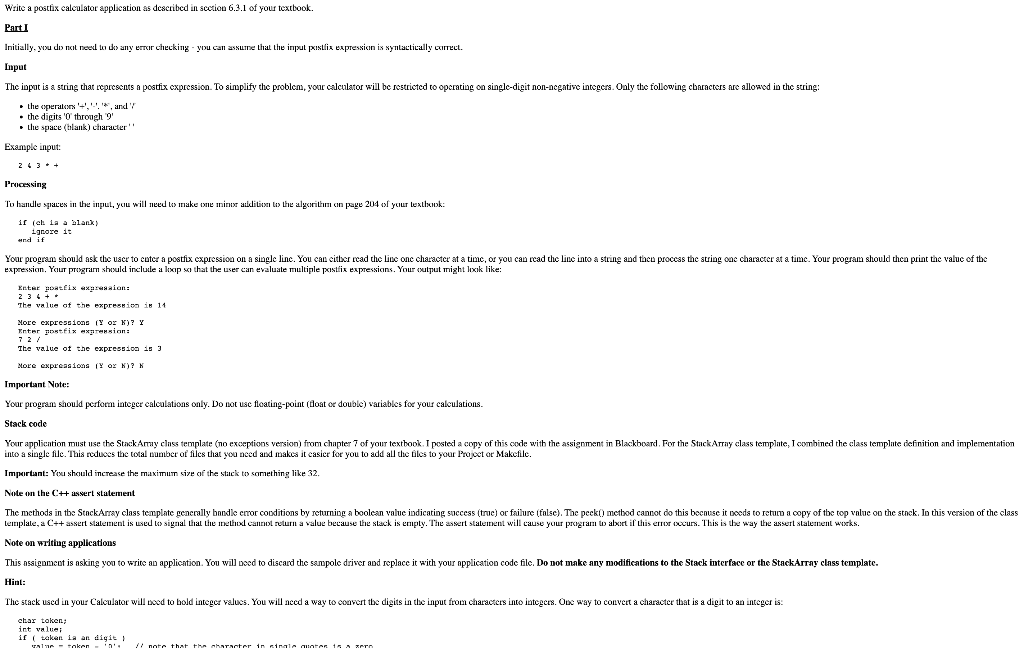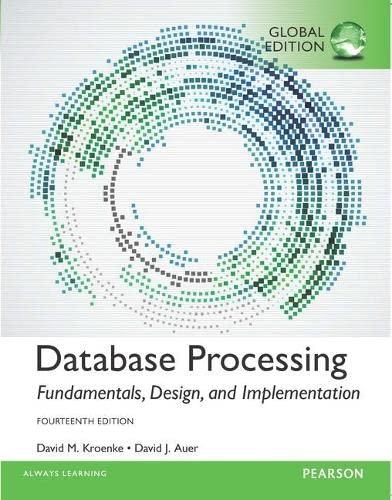

/** @file StackInterface.h */
#ifndef STACK_INTERFACE_ #define STACK_INTERFACE_
template class StackInterface { public: /** Sees whether this stack is empty. @return True if the stack is empty, or false if not. */ virtual bool isEmpty() const = 0; /** Adds a new entry to the top of this stack. @post If the operation was successful, newEntry is at the top of the stack. @param newEntry The object to be added as a new entry. @return True if the addition is successful or false if not. */ virtual bool push(const ItemType& newEntry) = 0; /** Removes the top of this stack. @post If the operation was successful, the top of the stack has been removed. @return True if the removal is successful or false if not. */ virtual bool pop() = 0; /** Returns the top of this stack. @pre The stack is not empty. @post The top of the stack has been returned, and the stack is unchanged. @return The top of the stack. */ virtual ItemType peek() const = 0; /** Destroys object and frees memory allocated by object. */ virtual ~StackInterface() { } }; // end StackInterface #endif
/** ADT stack: Array-based implementation. Listing 7-1 @file ArrayStack.h */
#ifndef ARRAY_STACK_ #define ARRAY_STACK_
#include "StackInterface.h"
const int MAX_STACK = 5;
template class ArrayStack : public StackInterface { private: ItemType items[MAX_STACK]; // Array of stack items int top; // Index to top of stack public: ArrayStack(); // Default constructor bool isEmpty() const; bool push(const ItemType& newEntry); bool pop(); ItemType peek() const; }; // end ArrayStack
/** Listing 7-1 @file ArrayStack.cpp */ #include // For assert
template ArrayStack::ArrayStack() : top(-1) { } // end default constructor
// Copy constructor and destructor are supplied by the compiler
template bool ArrayStack::isEmpty() const { return top template bool ArrayStack::push(const ItemType& newEntry) { bool result = false; if (top template bool ArrayStack::pop() { bool result = false; if (!isEmpty()) { top--; result = true; } // end if return result; } // end pop
template ItemType ArrayStack::peek() const { assert(!isEmpty()); // Enforce precondition // Stack is not empty; return top return items[top]; } // end peek // End of implementation file.
#endif
#include #include #include "ArrayStack.h" using namespace std; int main() { ArrayStack stack; string items[5] = {"one", "two", "three", "four", "five"}; for (int i = 0; i Write a postfix ealculator application a5 described in section 6.3.1 of you texcbook. Part I Initially. yve do not need un dos any error checking - you can assume that the irpet pastlix expression ix syntactically coirrect. Luput - the speralss ' + ', '-'. 'z', and 'r - the dipits '0' through 9 ' - Lhe spare (talanki) chiarater" " Example input: 243++ I'rucessing if (el la a ianik) ingore if expression. Your program should include a loop so that the user can evaluate multiple pastif expressions. Your cutput might lookk like: Yoar progran should perforn iateger calcalations only. Do not use floating-point (lloat or double) variables for your calculations. Stack code inte a single file. Ihis roduces the total number of files that you need and makes it casier for you to add all the bibes to your lroyect or Makefile. Imporbunt: You should increase tha maximum siye of the stack to sonething like 32 . Note an the C-+ assert statement Note on writhug applicatious Hint: ehar token; int value; if ( taken ia an aigit I Note on writing applications Hint: char token; int value; if ( token is an digit) value = token 10;// note that the character in single quotes is a zero Part II Error checking Add code to check for the following errors: - Invalid character in the input expression - If this error occurs, print an error message stating that an invalid character was encountered. indicating that the expression is malformed. expression, the stack should be empty. If it is not, you should print an error message indicating that the expression is malformed








